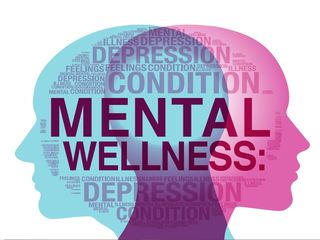Global AI in healthcare market expected to rise to $164B by 2030
The market size for 2023 was $10.31 billion
Read more...
Another report showed that the percentage of children aged 3 to 17 who had anxiety or depression rose from 9.4%, or 5.8 million, to 11.8%, or 7.3 million, between 2016 and 2020.
Mantra Health, a provider of virtual mental health services for college students, was around before COVID but now its mission is even more important. That's why the company made a slew of announcements this week: it launched new products, including dialectical behavior therapy (DBT) self-guided content and emotional wellness coaching resources for students; partnered with Togetherall, online community where students give and get support on concerns affecting their mental health; and, finally, Mantra raised $5 million in a Series A extension round of funding from returning investors, including VMG Partners, bringing its total funding to over $34 million.
Mantra said it will use the new funding increase its research and development capacity to develop new products.
Ed Gaussen, co-founder and CEO of Mantra Health, spoke to VatorNews about how college students are fairing in the current environment, why it was important to add DBT, and how the partnership with Togetherall will help its users.
VatorNews: What is currently happening in regards to mental health on college and university campuses? There was a major increase in youth mental health problems during the pandemic; has that subsided now or continued to be an issue?
Ed Gaussen: We are currently facing a mental health crisis affecting millions of college students on campuses all across the country. When students are not getting the proper help they need, it results in them dropping out of school or even ending up in a crisis. This is not an issue that we have years to solve – every day there are more students who need mental health care. For those of us in the mental health field, it is our responsibility to do everything we can to serve those students.
Research from the Fall 2022 National College Health Assessment showed that nearly three-quarters of students reported moderate or severe psychological distress. Another recent study from Gallup and the Lumina Foundation found that even as the COVID-19 pandemic fades into the background, the mental health challenges that plagued students are here to stay. That report showed that 41% of students enrolled in postsecondary education have considered “stopping out” in the prior six months, and 55% of the students who have considered stopping out have cited emotional stress as the reason why.
VN: How did Mantra respond to that increase? How did your company help alleviate that?
EG: When we founded Mantra Health four years ago, we started with a straightforward goal – to create the most effective digital mental health and wellness solution for these millions of young adults who need help.
The reality is that the need continues to grow, and that campuses are often constrained by the resources they have at hand to solve this alone. The great news is that a fast-growing number of institutions are open to partnering in order to solve this issue - so we exist to help them provide a larger and more comprehensive care continuum that complements existing on-the-ground options. With our Whole Campus Care offering, we seek to reach students upstream, so that we are treating student mental health proactively, and helping no matter where they are in their mental health journey. Ben Locke, the Chief Clinical Officer at Togetherall, our newest strategic partner, highlights this phenomenon that he calls the “treatment gap.” While various research puts the number of students who need some form of mental health and wellness support at anything from 50% and higher, an industry survey from AUCCCD shows that the average college or university is resourced to support ~12% of their student population. So, what about the remaining 38%+? That’s the “treatment gap,” and that’s where services like Mantra Health can step in to support.
We set out to create the most comprehensive and clinically effective mental health and wellness service. We are responding to a need from higher education institutions who want to have an all-in-one turnkey solution that integrates seamlessly with existing services. We’re lucky to be trusted by over 100 campuses across the country for clinical care, and with this new offering we will expand our ability to support students at a much larger scale. In addition to having one of the most comprehensive platforms in the space, we also feel confident that we have the highest quality offering - everything we do is rooted in clinical research and we are constantly improving our services to ensure that we are leveraging the most effective approach; it’s what the students we serve need and deserve.
VN: Tell me about the launch of dialectical behavior therapy. How does this differ from what Mantra was previously offering and why was it important to offer DBT as well?
EG: We’re thrilled about the addition of our DBT Self-Guided Skills program; it’s the first one of its kind focused on young adults and we think it’s a big moment for everyone in our space. You may already be familiar with DBT as an evidence-based treatment for individuals with borderline personality disorder or chronic suicidality, and that is definitely how it started out, but there’s been a progression in the field toward seeing DBT skills both as critical for those with severe dysregulation as well as skills that can be helpful for functioning effectively in the world. This was the core of Dr. Chugani’s research, our Vice President of Clinical Content and Affairs who joined us full time last year to design a program that promotes positive mental health and wellbeing at the campus population level. This content will teach students at all stages in their mental health journey skills around mindfulness, distress tolerance, emotion regulation and interpersonal effectiveness. Students will have the ability to pair these modules with our Emotional Wellness Coaching, an approach that has shown to be both more effective and have higher engagement rates for students than traditional, standalone self care apps.
VN: What kind of ROI have you seen from your DBT offering so far? How does that compare to the ROI you've seen with your other services?
EG: We’ve launched this product with a few of our partners this Spring and are still collecting data, which is proving to be very promising so far. We’re going to be rolling this out in full scale this Fall 2023, so we will keep you updated. However, research from our clinical experts informs our view that this DBT Self-Guided Skills Program will be enormously helpful for students.
VN: Why was Togetherall a good partner for Mantra? What are they offering you that you didn't have otherwise?
EG: In Togetherall, we see an organization whose mission and goals are very aligned with ours, but who is doing something completely different. Partnering just made sense, as it allows us to bring Togetherall’s impactful peer-to-peer network to even more students through our platform, and gives students who are using Mantra Health’s platform access to these peer networks that have shown to be very successful and engaging for students.
In many ways, we want Mantra Health to be an integrator for these types of services, so that students are able to access the best mental health tools they need, regardless of whether these tools are operated directly by Mantra Health, or by one of our world-class partners like Togetherall.
VN: What's different for Mantra's users now that you've partnered with them?
EG: Now, students who are using Mantra Health’s platform will have access to Togetherall’s leading peer-to-peer support community with 24/7 clinical moderation and oversight. This gives students yet another avenue for support that further bolsters our already robust ecosystem of care.
VN: How will you be increasing your research and development capacity? Will that mean hiring?
EG: Indeed. We’ve already made some phenomenal hires who come from leading companies in healthcare and higher education to help us develop the solutions that underpin our Whole Campus Care offering. We have a high bar for talent, and are always looking to connect with professionals from design, engineer, product, and clinical backgrounds to build and influence the next wave of Mantra services.
VN: What kind of products are you looking to add to your service going forward?
EG: As part of Whole Campus Care, we’re also announcing the addition of an On Demand Emotional Support line to offer in the moment assistance for students with an immediate mental health need. We believe that there’s a great opportunity to draw inspiration from the “drop-in” clinic experience that many universities have been offering successfully, and do it in a virtual environment that is complementary to the existing efforts from campuses.
VN: What is the future of Mantra Health? Where do you want to see the company go in the next few years?
EG: We will continue to invest in areas that will ultimately help us to achieve our mission - to improve the trajectory of every young adult’s life in a meaningful way through better mental health during university years. Our Togetherall partnership also marks the first of more collaborations to come that will bolster our product offering to help support students at all levels of acuity and also reach them in more unique ways.
VN: Is there anything else I should know?
EG: We recognize that there is a race to serve students well and we want to win this race thoughtfully and deliberately, and with the best outcomes for students always top of mind.
The market size for 2023 was $10.31 billion
Read more...At Culture, Religion & Tech, take II in Miami on October 29, 2024
Read more...The company will use the funding to broaden the scope of its AI, including new administrative tasks
Read more...
Joined Vator on
Co-Founder & CEO of Mantra Health
